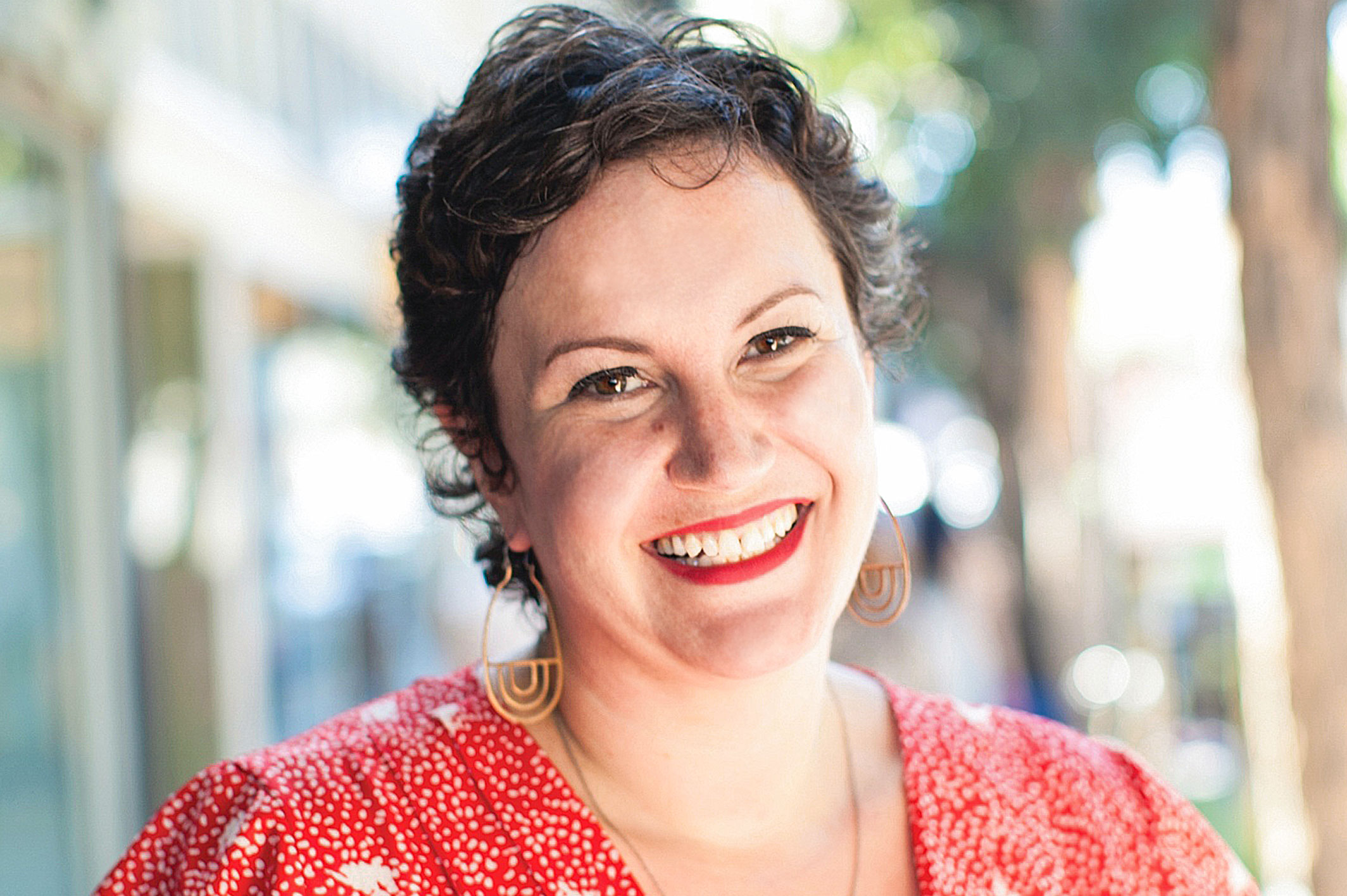
The Only Wrong Thing to Say is Nothing at All: 3 Questions With Emily McDowell
Empathy card creator and lymphoma survivor Emily McDowell said she believes the most supportive thing you can do for someone on a health journey is to be willing to show up, stay present, and listen.
Emily McDowell of Los Angeles, creator of Empathy Cards for illness and grief, and co-author with empathy scholar Kelsey Crowe of the book, “There is No Good Card for This: What to Say and Do When Life is Scary, Awful and Unfair to People you Love,” answers three questions on the topic of do’s and don’ts for patients needing support after a diagnosis, and for tongue-tied family and friends.
1. You have written that during 9 months of chemo and radiation after your own diagnosis of Stage 3 Hodgkin’s lymphoma at age 24, you experienced loneliness and isolation when some family members and close friends “disappeared,” because they just didn’t know to communicate. Or they said things that were outrageously insensitive, without even realizing it. Why does this happen—all the time?
People most often shy away because they feel unqualified to help. We’re afraid of doing or saying the wrong thing, and as a result, feeling like we’ve failed. And the fear of failure—and the self-judgment that comes afterward—is so strong that it can prevent people from reaching out entirely.
The first instinct is to spring into “make-it-better” mode
Most of us are taught that feelings of sadness, grief, or anger are intolerable. These things should be “fixed,” solved, or avoided at all cost.
Being solution-oriented serves us well in every-day life, so when someone we care about is suffering, our first instinct is often to spring into “make-it-better” mode, where we immediately try to help solve their problem with our suggestions, questions and ideas.
But it’s impossible to fix a loss or an illness, and trying to do so often results in our saying something insensitive without realizing it, or the suffering person ends up feeling alienated.
The book has been described as a crash course in Humanity 101.
2. The title of Chapter 6 in your book is “Please, NEVER Say This,” and it includes a “collection of unhelpful statements.” Is there an approach to delivering messages of love, hope and compassion to help avoid foot-in-mouth disease?
The most supportive thing you can do for someone is to be willing to show up, stay present, and listen. Remember that a person going through a hard time doesn’t want or need you to try and talk them out of their pain or solve their problem.
Trying to “relate” by bringing up something that happened to you, or a story you’ve heard, can prevent the opportunity for you to learn how the person is actually feeling about their situation. And unbridled optimism can feel like an empty platitude, with the person ending up feeling like you don’t actually want to hear them.
The best way to figure out how someone is feeling is also the simplest: ask them. “How are you?” sounds so basic, but most people will appreciate it. It tells the person that you remember and care about what’s happening, but it doesn’t require a long commitment to a conversation if they don’t feel like talking.
Unbridled optimism can feel like an empty platitude
Sometimes, a better question is, “How are you, today?” If it’s in the first days or weeks after a major, difficult diagnosis, it’s a safe bet that your friend isn’t feeling awesome.
One way to get around this is to ask, “How are you, today?” Adding “today” to your question acknowledges that overall, you’re aware that life kind of sucks in general at the moment, and that you understand there are good days and bad days.
It also takes what can feel like an overwhelming question and turns it into a manageable one.
3. Over the years, CaringBridge users have described “healing” as learning to live with the outcome of illness or injury, even when the outcome does not include cure. How does that fit into your experience as a person who has given and received empathy, in abundance?
In my case, my illness meant that I developed a greater understanding for the breadth and depth of the human experience.
There is pressure to immediately ‘find the silver lining’
I became able to cultivate empathy more easily, and I have many valuable friendships and relationships that I wouldn’t have had without being sick. All of that has enriched and informed my life in really invaluable ways.
That said, I also think there’s pressure to immediately “find the silver lining” in a difficult situation such as illness, injury, or loss; I think a lot of us feel confused if we don’t have a big realization about our life’s purpose or shift in our perspective after coming through something like that. (I blame inspirational quotes!)
I think it’s important to remember that perspective almost always takes time, and first and foremost, we need to be gentle with ourselves and with our expectations while we’re trying to navigate a new reality.
Start a CaringBridge Site
When you’re going through a health journey, you have a lot on your plate. CaringBridge replaces the time-consuming task of sharing your health news over and over. It’s a free, easy to use online journal for sharing health information with your family and friends.
Don’t go through your health journey alone.
You can stay connected to friends and family, plan and coordinate meals, and experience love from any distance.
All of this is ready for you when you start your personal CaringBridge site, which is completely free of charge, ad-free, private and secure. Don’t spend another minute alone!